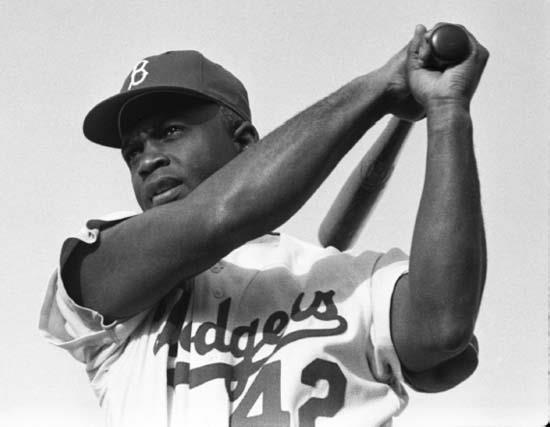SportsBaseball |
When was professional baseball racially integrated? |
A surge in the popularity of baseball after World War II helped pave the way for black participation in the formerly all-white major leagues. Brooklyn Dodger second baseman Jackie Robinson broke the color barrier in 1947. He and other early black major leaguers faced widespread hostility from fans and second-class treatment in the segregated South. Jackie (John Roosevelt) Robinson (1919–1972) joined the Brooklyn Dodgers as a third baseman to become the first black in the major leagues of the modern era. Robinson played his first game in this capacity against the Boston Braves at Ebbets Field in Brooklyn on April 15, 1947, and in 1948 shifted to second base. He was named Rookie of the Year in 1947. Robinson probably endured more racial insults in his career than any other person in history. In 1949 he became the first black batting champion and the first black to receive the National League’s Most Valuable Player Award. Robinson was the first black enshrined in the Baseball Hall of Fame, in 1962. Robinson was actually the first black to play at any level in the major leagues. He played with the Montreal Royals, the Dodgers’ top minor league farm club, in 1946, and proceeded to hit .800 with 4 runs batted in, 4 runs scored, and 2 stolen bases in his debut game.
Born in Cairo, Georgia, Robinson’s mother moved the family to Pasadena, California, after her husband left them when Robinson was thirteen months old. There he became active in sports while in grade school, playing competitively for the first time in a fourth grade soccer game. In high school and at Pasadena Junior College, he lettered in football, baseball, basketball, and track. His excellence in athletics continued at the University of California, Los Angeles, but Robinson left there because of financial pressures in 1941, just shy of a degree. He was drafted in 1942, and after boxing champion Joe Louis and other notables protested, he was allowed to enter Officers Candidate School and was commissioned as a lieutenant in the U.S. Army in 1943. Threatened with a court martial while in the army because he defied bus segregation laws in Fort Hood, Texas, he was exonerated.
Robinson’s first professional baseball team, which he joined in 1945, was the Kansas City Monarchs of the Negro American League. He was with this team when he came to the attention of the Dodgers. Robinson’s impact on baseball goes far beyond his baseball statistics. He had to excel not only athletically, but to comport himself well in the face of the opposition to him because of his race. He is recognized for the extent to which he succeeded in both regards and is widely credited with opening the door for other black aspirants to a career in major league baseball.
Facing a trade in 1956, Robinson retired from baseball and became an executive with the New York-based Chock Full O’ Nuts restaurant chain. He combined this position with active community involvement on behalf of African-American businesses, but he was often at odds with other black leaders of the day. New York’s Governor Nelson Rockefeller named him special assistant for community affairs in 1946. Independent throughout his life, Robinson refused participation in a 1969 Old-Timers’ Game to protest baseball’s lack of African-American involvement in baseball management and front office positions. An ailing Robinson threw out the first ball at the 1972 World Series. He died in Stamford, Connecticut, nine days later. In 1997, fifty years after Robinson burst upon the baseball scene, major league baseball officials dedicated the 1997 season to the pioneer, honoring the fiftieth anniversary of his breaking the color barrier and entering major league baseball.
The treatment that Robinson and other black players who integrated baseball endured failed to deter them from their goals, as they began to stream into professional baseball, breaking records previously held by white superstars. By the 1970s blacks were on the rosters of every team in the league and were joined in increasing numbers by talented players from all parts of Latin America. In 2013, 42, a biographical sports film about Robinson, was released.

Jackie Robinson broke the color barrier in American baseball when he joined the Brooklyn Dodgers in 1947. An outstanding player, he had a career batting average of .311, including 1,518 hits and 137 home runs before retiring from the sport in 1956. His jersey with the number 42 was retired not only for the Dodgers but for all major league teams, who still honor the man on “Jackie Robinson Day,” when everyone wears the number 42.
